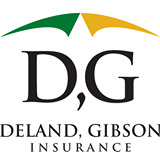Are you considering renting out your home on a hosting platform like Airbnb or VRBO?
Services like these have made it incredibly easy for homeowners to lease their properties. Peer-to-peer leasing is a booming trend; according to The Zebra, by January 2023, Airbnb had over 150 million users and 5.6 million active listings. However, it’s essential to acknowledge the risks associated with hosting short-term renters. This blog will discuss the ins and outs of short-term rental insurance for hosts.
Massachusetts Short-Term Rental Regulations
In 2018, Massachusetts passed a new short-term rental act that implemented specific requirements for hosts and hosting platforms that you must know before renting out your property. The law defines a “short-term rental” as a stay lasting 31 days or less. If your home is rented for more than 31 days, it does not fall under the short-term rental category.
Under the law, short-term rental hosts must register their property with the MA Department of Revenue, obtain a certificate of registration, and collect and remit taxes to the state. Furthermore, this law includes provisions related to safety standards, occupancy limits, and insurance requirements.
One of the key requirements for hosts is to have at least $1 million in liability insurance. If you use a platform like Airbnb to host your property, check whether their coverage meets this requirement.
Additionally, hosts must inform their insurance company about their intention to use their property as a short-term rental. Failure to disclose this information may result in the cancellation of your insurance policy.
It is essential to familiarize yourself with these regulations and ensure compliance to avoid any legal or insurance-related issues.
What does a hosting platform cover?
Some hosting platforms, such as Airbnb, offer automatic insurance coverage. Each platform may have different amounts of coverage available. Depending on the situation, you may need more than these platforms provide. Airbnb’s coverage, while a good start, has some exclusions that would prevent you from being protected in certain situations. Below are links to popular leasing platforms and their coverage offerings.
Before participating in short-term leasing, contact your Deland, Gibson Insurance agent to ensure you have the proper coverage.
Why do I need special insurance as a host?
While letting guests stay temporarily at your house is the new normal, many risks are still associated with the trend. Property damage, guest injuries, and theft are just a few examples of what can happen when renters stay at your home. Appropriate insurance coverage is essential to safeguard against these situations and gain peace of mind. A standard homeowner’s policy does not provide coverage if the property owner or immediate family does not occupy the house, so it may not suffice.
Consider exploring options like short-term rental insurance or umbrella insurance to ensure adequate protection while renting out your property.
Short-Term Rental Insurance: A short-term rental insurance policy specifically addresses the risks associated with hosting guests. As previously mentioned, this coverage typically includes risks such as property damage, theft, liability protection, and loss of rental income. It can also cover incidents like guest injuries and damage caused by guests.
Umbrella Insurance: Consider adding an umbrella insurance policy to your coverage. Umbrella insurance provides an extra layer of liability protection that goes beyond the limits of your primary policy. This can be especially useful in case of a major incident or lawsuit. Check with your insurance agent to make sure your policy does not prohibit the purchase of umbrella coverage for short-term rentals.
Consult Deland, Gibson
Navigating insurance coverage for short-term rental hosting can be overwhelming. To ensure you have the right coverage for your specific needs, we recommend consulting an experienced insurance agent. Contact a Deland, Gibson agent today to assess your situation and provide peace of mind.
Frequently Asked Questions
Should I get Insurance on an Airbnb?
Yes, according to Massachusetts law, it is necessary to have at least $1 million in liability insurance while hosting a short-term rental property. Although Airbnb offers preliminary coverage, you should contact your insurance agent to ensure you are adequately covered.
Can I host an Airbnb in an apartment or condo?
Before listing a rental property on a site like Airbnb, you must know whether your lease allows short-term rentals and get permission from your landlord. Some local jurisdictions, such as NYC, prohibit short-term rental hosting, as well as many condo associations.
What is a short-term rental?
A short-term rental is a property that a host rents out to others for short-term use for no more than 31 days.
What is a hosting platform?
A hosting platform, such as Airbnb, is defined as an electronic process that allows hosts to list their properties in exchange for rent. They are the middlemen between hosts and guests.
Deland, Gibson Insurance: Providing Peace of Mind Through Proactive Service
Deland, Gibson: A Trusted Choice, Five Star Accredited independent insurance agency. Established in Massachusetts in 1900, Deland, Gibson is a 4th generation family-run insurance agency that has thrived working as a trusted advisor for its client base. We work with individuals and businesses to lower their Total Cost of Risk. We analyze a client’s direct and indirect costs and implement risk reduction plans to address areas of business, hazard, or strategic risk.



